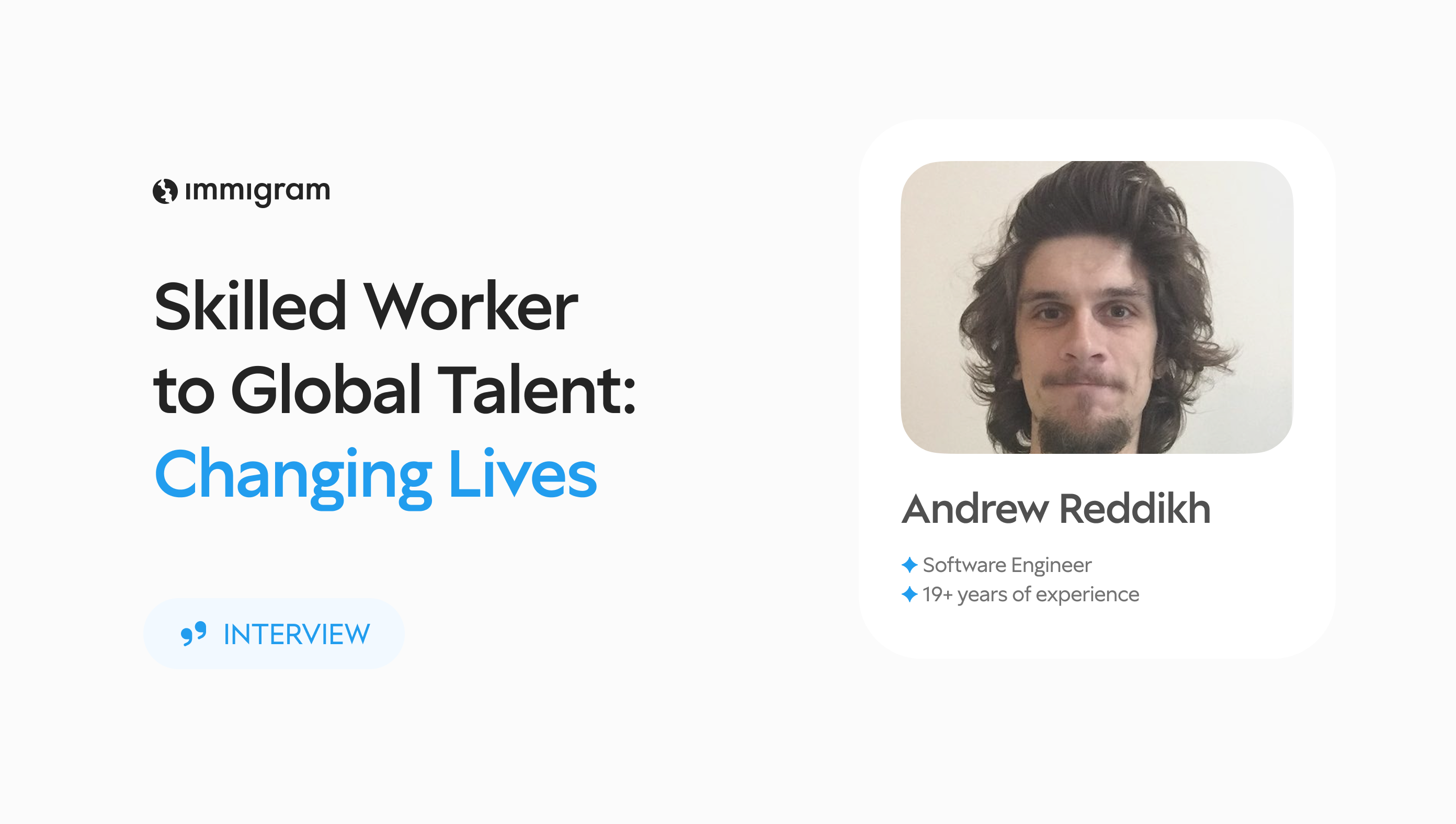
‘At First, It Felt Out of Reach’: Global Talent Visa Holder Andrew Reddikh Recalls the First Steps of His Journey
As a foreign software engineer working for a fintech startup in the UK, Andrew Reddikh was staying in the country on a Skilled Worker visa, which limited his freedom and tied him to a specific employer. After learning that some of his acquaintances had obtained the more flexible and attractive Global Talent Visa, he decided to give it a try—despite initial doubts. Eventually, he was granted the visa, opening a new chapter in both his life and career. Below, he shares his experience.
I moved to the UK 4.5 years ago on a Skilled Worker visa to work at a fintech startup. After two years, I saw that a few friends had received the Global Talent Visa and decided to apply. I got it in late summer 2022—and a month later, I was laid off. That’s when I realized how valuable the visa is. It gave me the freedom to work anywhere or start something of my own.
In fact, the job search after that turned out to be relatively easy. I joined another startup, this time in the AI space. Now, I’ve already switched to ILR (Indefinite Leave to Remain), which brings me closer to a British passport.
I first came across the Global Talent Visa website more than seven years ago, while I was living in Moscow and researching the Skilled Worker visa. The site listed the GTV criteria—it wasn’t a long list, and I matched some of them, but not all. At the time, it felt out of reach.
I revisited the idea at the end of 2021. On the recommendation of some friends, I contacted the team at Immigram. During the consultation, they walked me through the criteria in detail and reassured me that even if I didn’t meet all of them yet, we could work on building them up over time. And that’s exactly what happened.
I first had a call with one of the co-founders, Misha. Then, if I remember correctly, I had another call with a caseworker. They provided me with a file that outlined the tools, the criteria, and what could help demonstrate that I met them. After that, most of the preparation was up to me.
At the beginning of 2022, I officially kicked off the process and started gathering information. I had a checklist of criteria and began working through it myself. I attended a few conferences, gave several talks throughout the year, and wrote a couple of articles.
To be honest, I didn’t consider applying on my own. I had a friend who did everything himself, but by the time he went through the pre-validation and assessor review stages, he ended up spending almost the same amount of money. So it didn’t seem worth it.
Immigram handled my entire case. They showed me how to present it, how to structure the documents correctly, and how to meet the formal requirements. The preparation process was intense, and they fully managed all the legal aspects.
The process moved quickly overall, but not all timelines were met on Immigram’s side. I wanted to submit the application as soon as possible, but it didn’t happen quite as fast as I had hoped.
One of the main challenges was with the reference letters—specifically, getting the right people to sign them. The Immigram team was great in handling this. They helped me identify alternative referees, and we rewrote the letters together. It turned out really well.
They also created a fantastic profile for my case. Honestly, reading it was inspiring—even though it was about me.
I’d say the most important thing is to believe in yourself. When you first read through the criteria, they can feel like unreachable goals. But in reality, it's just a matter of dedicating time to specific actions.
I’d recommend creating a plan and moving through it step by step. Increase your public presence—get involved in communities. For example, I connected with the team at OpenUK, who organize conferences. They’re doing really impressive work. So if you're involved in open source, I’d definitely suggest reaching out to them and getting involved—it can really help build your case.